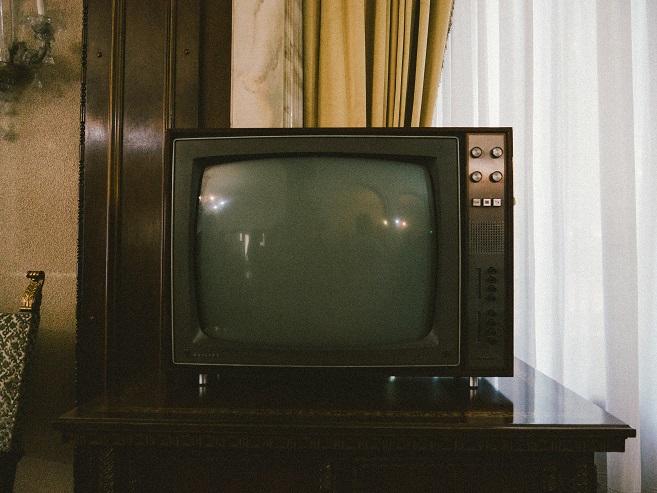Are you interested in how the world of media makes its money?
Media and entertainment is a lucrative industry, but it also costs a lot to run. We need media in our modern society and with this normal human desire comes opportunity.
Let's look at who funds media and their various streams of income. We’ll also have a brief look at the opportunities for making money in the field of media broadcasting, entertainment and advertising.
Want to give private lessons?
Join the Superprof community and share your knowledge with inquiring and motivated students.
Media Money from Government
Like any business, the type of media and whether it is government owned or privately owned will determine its motives. We all know that money talks, and therefore most organisations, including media companies, jump when the investors, contributors or media bosses speak.
Originally all print and mass broadcast media were owned by the state, or they had a majority stake. In the United Kingdom, the British Broadcasting Commission (BBC) is a great example of this where they are partially funded by the government in partnership with commercially viable ventures.
In America however, the story is completely different. The competitiveness of the American market, incredible volumes to sustain activity and active production industry all support the entertainment and broadcasting industry to compete on a global level. They find their own private media investors, but benefit from incredible tax breaks and subsidies.
Does South African media get money from the government?
The South African Broadcasting Corporation (SABC) owns 19 radio stations and 6 television stations. Like all countries, the state was the original owner of media. The government controlled and censored the SABC and was therefore also responsible for funding the broadcaster.
Over years the financing model changed and currently the organisation, like most media owners across the globe, relies heavily on advertising revenue and tv licensing fees.
The historically competitive SABC now has to cater for a much broader audience with more alternatives available in the market. Streaming services are slowly chipping away at their viewership on tv and radio stations have to compete with podcasts and music streaming services.
The increased competitiveness might be great for commerce, but the inefficiency of the SABC has led to a slow decline and the mismanagement of funds comes under the spotlight quite frequently. Many South Africans will argue that the state should give up all media, but it's a complicated story and forming a strong argument for or against it means understanding the economics and social impact of the privatisation of media.
The Department of Trade and Industry has been doing great work to develop the entertainment sector in South Africa. It sponsors or drives initiatives that will stimulate commerce and assist the production of quality content here on home soil.

Private Media Investments
In America there’s a host of private broadcasting channels. You might not be able to become a direct investor nowadays, but through the purchase of mother company shares, Americans can enjoy the benefits of growth in companies like HBO or ABC.
The American channels are all a good example of leading and contributing to the innovation around media. They were immediately on-board to create digital content and streaming services for consumers and unfortunately the South African Media and entertainment industry were lagging massively behind.
Those South Africans who'd like to invest in media can buy shares in international companies like Netflix, Apple, who creates AppleTV, and Amazon, the maker of Amazon Prime.
Donations and Fundraisers
Donations used to be a popular way to fund media and media ventures in the past. The old SABC and BBC (UK) used to enjoy funding from international countries like Germany, Sweden and The Netherlands.
The media in some countries were lucky enough to have fundraisers from wealthy patrons help them through trying times, but this has become less popular over the recent years.
Want to give private lessons?
Join the Superprof community and share your knowledge with inquiring and motivated students.
Licensing Fees
The SABC currently gets less than 15% of its revenue from TV licensing fees. This number has been declining as more and more consumers fail to pay their TV licenses. The increase and popularity of streaming services like Netflix and Amazon Prime is stated as the main reason for this.
Do you think people aren’t paying their tv licenses because they feel they aren’t watching SABC anymore, and would you argue that this is morally the correct thing to do?
Money From Subscriptions
Subscriptions are very similar to licensing fees, but more associated with streaming services and privately owned 'broadcasters'. Multichoice is the biggest contender in South Africa, and in other countries they have companies like Virgin and Sky TV as alternatives.
Multichoice has always been good at producing quality content for a variety of audiences, but competitive pricing from streaming services and brand new international content attracts many users. Viewers feel that choice in the content they want to see is more important than getting a great variety of channels they rarely view at a great cost.
Disney Plus recently launched in South Africa and most audiences are waiting in anticipation for services that are available in other countries like Hulu and HBO Max.

Money from Media Advertising
The biggest chunk of any broadcaster’s revenue comes from advertising.
Many brands will advertise their products on a channel, like SABC2 or MNET, and pay to place their commercials. Prices for placing adverts will vary as these are based on the viewership of the channel, listenership of the radio station, readership of the paper or magazine or impressions or displays by digital advertising.
Demand also comes into play when determining prices.
It thus makes complete sense to pay more because of the increased exposure and the consequent competition popular channels and slots have.
Advertising income is the bread and butter of broadcasting and for that reason they will make decisions around content to attract larger audiences and in turn charge more for advertising.
Reno Race is a popular SABC 1 program that is sponsored by Cashbuild. It is a programme about renovations of homes and the right brand fit. The advertiser pays for the content creation through sponsorship, opening doors for new content while expanding their marketing strategy and exposure.
The newer online media channels also rely heavily on advertising. In South Africa the mobile phone has given people greater access to media, even those without televisions or access to press and magazines. This makes mobile and digital an imperative medium to reach greater volumes of people through online marketing.
Just think about all the opportunities that exist in podcasts and music streaming, and on social media and websites …
We now have a better background on how print and broadcasting media is financed. Let’s see how can you get involved in the industry to make your own money.
Money Opportunities in Print and Digital Media
Press and print used to be the most popular media forms. That was until outdoor media and television broadcasting came along. Television certainly garnered the top spot and the price of advertising also reflected its popularity. But nowadays there’s a new and strong contender – online media.
A job in media sales, management or production of print media can become a lucrative career or business opportunity for a lot of people. Historically there used to be a media sales agent that sold advertising space for all those channels, but nowadays you’ll have channel specific sales people who only sell digital advertising or advertising space in a magazine.
The most creative and exciting career in print is becoming a designer, the person who designs the adverts for clients. These used to be more for newspapers or magazines, but today’s graphic designers also design for digital mediums like internet display or social media advertising.
Another creative career, but with more fact and reasoning, can be writing for print, press and digital media. Studying journalism will allow you to cover press stories for national or international news stories, but writing courses and a bit of SEO (Search Engine optimisation) experience might be enough to get you started on digital writing. If you are interested in that you can start blogging today on a website you can create on your own.

The digital world is growing exponentially and with all the innovation comes newer jobs and company ideas. Web design, web development, or back-end development are all fields that are increasingly technical and popular.
The more activity there is on a media channel, the bigger the audience and the chances for media to advertise will be.
How many adverts have you seen in your social media feed?
Well that’s how social media makes their money. Digital media allows advertising to be a lot more targeted than traditional forms of adverting because technology can zoom in on individuals, rather than massive groups.
Have you ever run a Google search for a new bed and the next day you only see adverts of beds on your social media? Through the use of cookies, companies track your behaviour online and will target you with adverts designed to suit your interests and tastes.
Making Money in Broadcasting
Journalism was the historic route to get into most broadcasting careers, but over the last few decades many specialist fields and qualifications also emerged. Broadcasting creates many opportunities in and around the production of on-air content and you can consider becoming a researcher, producer, writer or presenter in the media industry.
Most people interested in media had a presenter or newsreader that attracted them to the industry.
Don’t forget social media. Today influencers are making loads of money from garnering followers before they partner with brands to review their products or punt them online. Imagine Charlize Theron makes a post to mention a product on Instagram or Facebook. Those big names come at a price, but nothing stops you from creating your own, niche audience of followers with the same interests as you.
Read this article if you want to learn everything about making money from social media.
Whether you plan to enter broadcasting, print or online marketing, the world of media has some of the most thrilling and ever-changing careers to keep you engaged.
And if money is not your thing, you can choose to fight the 'good fight' for society by working for government to ensure the news we see and read is fair, responsible and in the best interest of our people.
Want to give private lessons?
Join the Superprof community and share your knowledge with inquiring and motivated students.
Summarise with AI:





